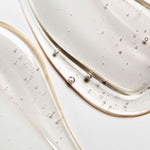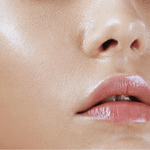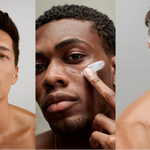EB5 BLOG
How the Sun Ages Skin + How to Combat Free Radicals

Your mother was right about sunscreen. Your dermatologist isn’t harping just to harp. Beauty experts aren’t kidding when they insist you wear sunscreen. Sunscreen is absolutely necessary. And if we choose to go without, our skin suffers and ages much faster than it would if we listen and slather on the SPF each and every time we’re in the sun.
The truth is, our skin naturally begins to age the very day we’re born. Our cells were the freshest, strongest and most pure when we were born, and factors they were exposed to thereafter, affects them, ages them and compromises them. Our skin is our largest organ. It’s the first mode of defense for the rest of our bodies. Needless to say, it takes a beating. It’s exposed to the sun, environmental toxins and elements in the air. And all the while, it tries to protect itself from heat, from water loss, from microorganisms and so much more.
Using sunscreen is one of the smartest ways we can protect our skin. UVB rays cause immediate damage by penetrating the top layers of skin, causing sunburn. UVA rays cause long term damage as they penetrate the deeper layers of the skin causing signs of aging and sometimes, even cancer.
Both types of UV rays create free radicals in the skin. Free radicals are unstable molecules that are constantly searching for an electron to bond with. When they finally find one to pair with, it compromises the healthy molecule, starts a chain reaction, and damages cells and DNA structure. In simpler terms, it can break down collagen and elastin, making skin saggier and older-looking. The damage done is called “oxidation”, similar to the way a bitten apple browns when it’s exposed to air, or the way metal rusts when exposed to outdoor elements.
However, free radicals don’t only come from the sun. They come from ordinary bodily functions, like digestion, smoking, alcohol, poor diet, environmental pollutants, high levels of stress and even certain medications. Free radicals come for our bodies and our skin from all angles and sources, so it’s important to know how to combat them.
3 of the Most Effective Ways to Fight Free Radical Damage
1. Sunscreen
Sunscreen doesn’t fix free radical damage, but it does prevent it. Sunscreens with added antioxidants, however, can help repair free radical damage. The most important thing to look for when choosing a sunscreen is a broad spectrum sunscreen that blocks both UVA and UVB rays. Mineral sunscreens are safer, smarter options as chemical sunscreens often include ingredients that are also damaging to the skin. In conjunction with a broad spectrum sunscreen, make sure your diet incorporates food with plenty of antioxidants. (If you can find a sunscreen with antioxidants, even better!)
2. Antioxidants
Our bodies use antioxidants to lessen the effects of free radicals. Antioxidants in our diets and in our skincare help fight off free radical damage to our skin.
- Orange foods — carrots, butternut squash, sweet potatoes, cantaloupe, and pumpkin contain carotenoids that help reduce sunburn and wrinkles, and are also good for your vision.
- Red wine, berries and grapes have some of the highest levels of antioxidants like resveratrol.
- Green tea not only contains less caffeine than coffee, but it includes high concentrations of antioxidants like polyphenols, which are known to have cancer-fighting properties.
3. Vitamin C
Vitamin C fights free radicals, making it an absolute superstar ingredient for your skin. It’s an incredibly powerful antioxidant that brightens and smooths skin while protecting it from free radical damage that breaks down collagen in the skin and leads to aging. Keep in mind, vitamin C doesn’t protect your skin from UVA/UVB rays — apply sunscreen, too!
So three key takeaways:
- Always, always ALWAYS wear a broad spectrum sunscreen.
- Eat your antioxidants to fight free radicals and repair free radical damage.
- Use a Vitamin C Serum daily to prevent free radical damage and repair free radical damage: it’s a superstar antioxidant that will smooth and even your skin tone and protect it from sun damage and other factors that lead to aging skin!







